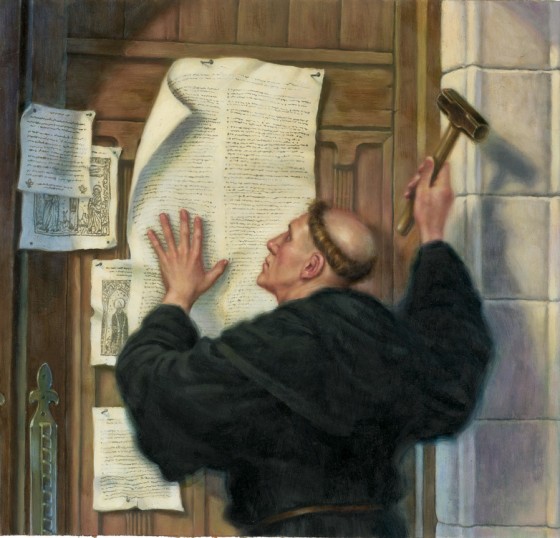
Part I
Part II
Part III
Part IV
Part V
Part VI
Part VII
Part VIII
Part IX
Part X
Part XI
Part XII
Part XIII
Part XIV
Today Protestants celebrate half a millennium of Reformation. Today, exactly 500 years ago, Martin Luther ignited the Protestant Reformation with the bold act of nailing his 95 Theses against the Wittenberg church door, opposing the heresies and malpractice of the Roman Catholic Church at the time. We thank God for the great deeds He performed through the Reformers many centuries ago.
Nonetheless, we are just as much, if not more, in need of a Reformation today than we were 500 years ago. If this series has proven anything, it is that all of institutional Protestantism has forsaken the doctrine of the original Reformers. Calvin, Luther, Zwingli, and virtually all the other Reformers would have faced church discipline for their views had they been members of a contemporary Protestant churches. This leaves, for the time being, the responsibility on families, and particularly fathers as heads of household, to reform their lives and theology to increasingly conform to orthodoxy and orthopraxis. This, we should admit, is a terribly sad state of affairs and can be altered only by divine intervention. Nonetheless, the history of the Reformation serves to encourage us as the years go by, teaching us that not all hope is lost and that God raises up His instruments in His own time and to His own glory.
As a final thought of encouragement I conclude this series with a final ethnonationalist thought from the greatest Reformer of them all, John Calvin, from his commentary on Jeremiah 9:2:
Delightful to every one is his native soil, and it is also delightful to dwell among one’s own people . . . all his relatives and the nation from which he sprang.
Have a blessed Reformation Day.
| Tweet |
|
|
|




